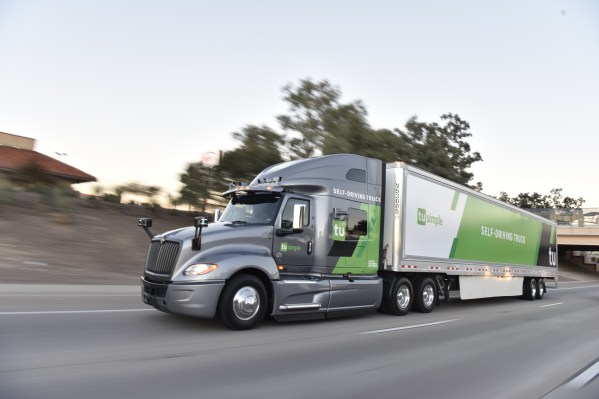TuSimple is leaving the Nasdaq as it exits the US

Chinese autonomous trucking startup TuSimple will delist itself from the Nasdaq stock exchange as it moves forward with its plan to fully exit the U.S. market.
The company announced Wednesday that it will file what’s known as a Form 25 on (or around) January 29 to deregister its stock, and expects the shares to trade until about February 7.
TuSimple says it is choosing to take itself off the stock exchange for a few reasons. A special committee made up of independent directors said the company’s “valuation and liquidity have declined” while the volatility of its stock price “has increased significantly,” and that the “benefits of remaining a publicly traded company no longer justify the costs.” The company went public in 2021 with a valuation of more than $8 billion, but is now worth closer to $70 million. Its shares are worth around 30 cents after once trading as high as $62.58.
The committee also said that “[s]ince TuSimple’s initial public offering in 2021, there has been a significant shift in capital markets, due in part to rising interest rates and quantitative tightening, that has changed investor sentiment for pre-commercialization technology growth companies” — a statement that’s as true as it is dry.
These are all reasonable, unsurprising explanations, though they undersell what happened at the company over the last two years. Before going public in 2021, the Committee on Foreign Investment in the United States took a close look at TuSimple and its Chinese shareholders. The startup wound up being investigated by the FBI and the Securities and Exchange Commission, in part because of co-founder Mo Chen’s connection to another Chinese trucking startup, Hydron. Chen then helped push out fellow TuSimple co-founder Xiaodi Hou in late 2022 while the startup was under investigation.
Since then, the company continued to struggle. It slashed headcount and waffled on its strategy, and narrowly avoided a forced delisting last May. The company ultimately decided late last year to exit the U.S. market entirely and focus on China. Some of its trucks in the U.S. are now going up for auction, along with a bunch of other equipment, like the lidar sensors it bought from Hesai and Aeva.

